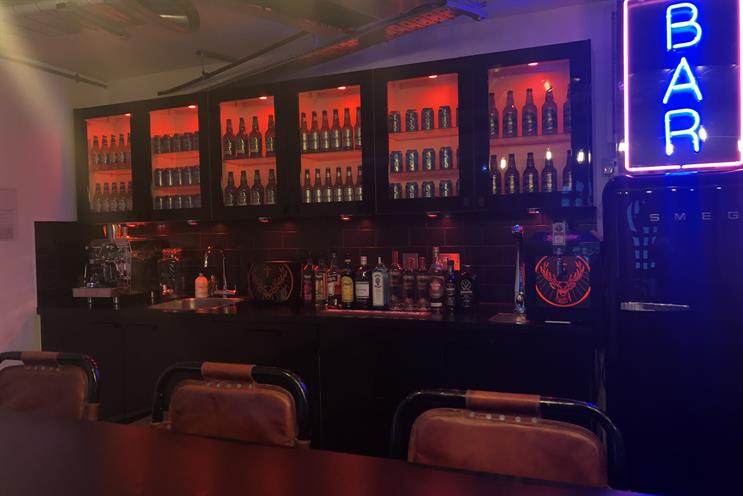
There are stark divides in attitudes towards alcohol between Generation Z (18- to 25-year-olds) and older generations. Growing up in the context of the global financial crisis, Brexit and a hyperconnected world, these young people steel themselves against an unforgiving adulthood and a lifetime archived on Instagram by seeking to be in control of their own destiny.
Drinking is no longer a performance enhancer but a threat to holistic health and productivity. With the proliferation of alcohol-free university dorms and less drinking at work, alcohol is losing its place in young people’s lives.
The Last Round?, a study into Gen Z’s attitudes to alcohol by Red Brick Road and research consultancy Opinium, surveyed bar managers, Gen Z (which the research defined as 18- to 25-year-olds) and older generations for comparison data. Overall, 1,381 people responded.
Five trends from the research
1 Performance over partying
A huge 75% of Gen Z feel it is important to be in control of all aspects of their life at all times (compared with 49% of Gen Y/X), naming work or study as their number one priority, rather than socialising or partying. In a world that's increasingly difficult to get ahead, they see a hangover, lighter wallet and a sloppy social media presence as a competitive disadvantage.
2 Holistic health awareness
For Gen Z, 83% feel mental health is just as important a consideration as their physical health (versus 47% of Gen Y/X). Drinking alcohol is perceived as a much riskier activity, creating a greater appetite for moderation.
3 Prioritising pageantry over alcohol percentage
In line with their rejection of binge-drinking and embracing quality over quantity, Gen Z are flocking towards premium brands and are savouring their drinks rather than getting drunk on cheaper alternatives. Indeed, 69% of bar managers report an increased demand for cocktails over the past five years and 72% report greater consumption of premium drinks.
4 The rise of DIY bartending and 'stay-in socialising'
Bar managers are concerned that they offer an experience that customers now have the ability to create for themselves – 91% claim it is important for their bars to offer an experience that cannot be replicated at home. Traditional bars are not just competing with other nightspots for Gen Z’s attention – bars need to beat the sheer comfort of socialising in one's own home with Netflix or Deliveroo. Brought up in an era when catching up with friends occurred through the Houseparty phone app, a Fortnite gaming session or a Reddit message board, drinking isn’t the primary bonding ritual for this generation.
5 Prepare setting to be phone-friendly
Bar managers feel that an integral part of coaxing younger customers into bars is through maintaining an "Instagram-ready" look in either the service or setting. Seventy-one per cent say their bars have to be unique to attract customers – often capitalising on an Instagrammable feature wall or installation in order to have social currency in online conversations as friends plan their night out.
How are marketers responding?
Jägermeister may be more traditionally known for its use in Jägerbombs (the spirit downed with Red Bull) and lively nights out. But it is evolving its strategy to ensure it also speaks to this younger audience.
Marketing director Nicole Goodwin said the brand is focusing on its use in high-end cocktails and ice-cold shots: "Jägermeister is a lifestyle brand whose DNA is rooted in its distinctive irreverent nature and long-time music associations. Our Ice Cold Shot and botanical cocktail serve strategy, designed and delivered by expert bartenders, resonate with our youth audience, who value premium drinking experiences and brands with heritage."
She added that the brand is focusing on its festival and live-music activations such as the Jägerhaus, the Ice Cold Gig and Jäger Soho: "These help us build and retain brand love with a generation that value experiences over ‘things’."
Meanwhile, Alex Carlton, the founder and chief executive of Stryyk, a non-alcoholic spirits company, believes his products are meeting two needs: "The big two in my mind are the ability to have a grown-up drink with zero alcohol – one that is not a tonic water or elderflower, sugary-type concoction [and] secondly there have been a number of studies released detailing how people feel self-conscious if they are not drinking with their peers and friends. It is considered quite anti-social, so drinking a zero-proof spirit ensures people remain included and firmly part of the moment."
Carlton said marketers looking to engage with a younger audience needs to market with them, not to them. "Understand it’s a two-way conversation, so be engaging but with authenticity and keeping it real and don’t bull shit them," he explained. "Respect their privacy – they are more private and less collaborative than millennials (apparently) – we need to understand their values and tap into them."


